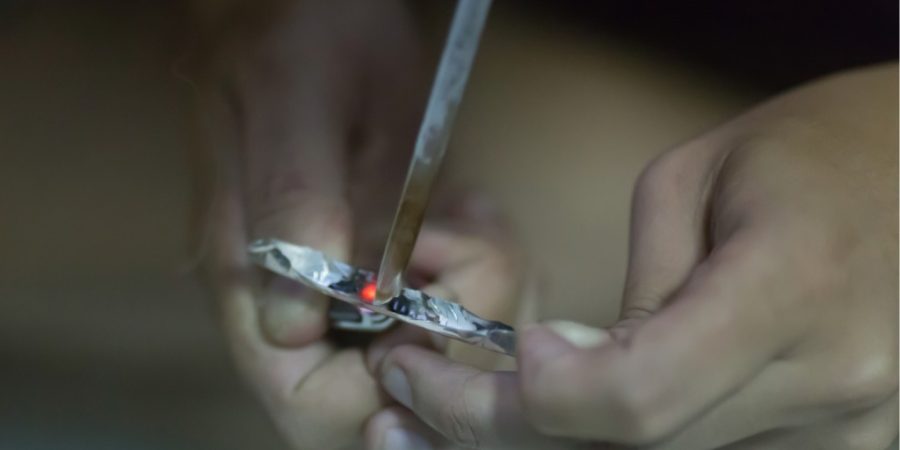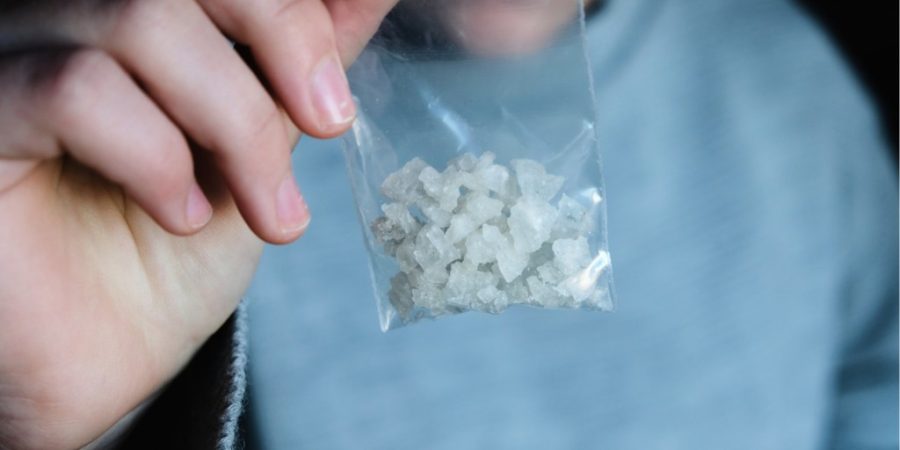
An amphetamine addiction can be extremely detrimental to veterans’ physical, emotional, and mental health. Sadly, many veterans aren’t sure how to break the cycle of amphetamine abuse. The truth is that getting the right amphetamine addiction treatment in a veteran-focused facility is the only way to find long-lasting sobriety.
At Heroes’ Mile, we have a unique way of addressing amphetamine addiction treatment for veterans. Today, learn everything you need to know about amphetamine addiction as well as how we can work together to get you on a path toward recovery today.
Table of Contents
Symptoms of Amphetamine Addiction

Amphetamines, also known as uppers, crank, or speed, are drugs that have a powerful influence on users’ bodies and minds. This class of drug can be injected, taken by mouth, or smoked. In certain forms, this drug is known as methamphetamine or crystal meth.
When prescribed legally, amphetamines can be used to treat certain medical disorders, such as attention deficit hyperactivity disorder (ADHD). People with sleep disorders like narcolepsy also benefit from amphetamines. Amphetamines are stimulants, meaning that they stimulate, or heighten, the way that your brain processes signals from the body. Often, this results in the user feeling more awake, more focused, and more energized.
Those are common features of an amphetamine high, which is what makes these drugs so addictive. In fact, the National Institute on Drug Abuse reports that millions of people in the United States abuse amphetamines every day. Amphetamines are a Schedule II drug, according to the Department of Drug Enforcement Administration (DEA), meaning the they are legal to use when prescribed and used with doctor supervision. However, Schedule II drugs also come with a high potential to be abused. This makes amphetamine addiction treatment even more essential, particularly among the veteran population.
One of the first signs of amphetamine addiction would be taking the substance outside of its recommended or prescribed dosage—or using these drugs without a prescription at all. Other symptoms of amphetamine addiction include:
- Decreased appetite
- Inability to sleep
- Mood changes
- Worsened mental health symptoms
- Experiencing withdrawal symptoms when not taking the drug
The side effects of amphetamine abuse are also apparent, with many users experiencing weight loss, shifts in behaviors, and increased anxiety. There are many more side effects that come with amphetamine addiction, and these can be physical as well as psychological.
Most alarmingly, deaths related to amphetamine overdoses are on the rise. One study reports that methamphetamine overdoses, in conjunction with cocaine overdoses, have caused more casualties than prescription opioids in recent years.
All of this information above shows that amphetamine addiction is not something to take lightly. Unfortunately, veterans are at an even greater risk of developing an amphetamine addiction. On top of this, veterans are in need of specialized treatment to recover from this debilitating disorder. Let’s take a closer look at veterans’ relationship to amphetamines and what can be done to achieve recovery.
Veteran Amphetamine Abuse: Prevalence, Risks, and Outcomes

According to the Substance Abuse and Mental Health Services Administration (SAMHSA), veteran amphetamine use, including meth abuse, has been increasing in recent years. In fact, thousands of veterans struggle with an addiction to amphetamines.
Overall, veterans are more susceptible to developing a substance use disorder than the general population. One of the main reasons why this is the case is because of the type of experiences veterans have. To put it mildly, veterans do not have the same type of job responsibilities as a typical civilian would. Instead, veterans are expected to work in environments that are unpredictable, unfamiliar, and potentially life-threatening.
As a result of this, veterans often leave service with painful memories and even mental health concerns, such as post-traumatic stress disorder (PTSD). Though help is out there for veterans who need it, many vets aren’t sure how, when, or where to seek treatment. Instead, turning to drugs like amphetamines can sometimes seem like the only solution to block out the discomfort of physical and emotional injuries.
But this coping mechanism only serves to make matters worse for veterans. Amphetamine use can lead to short- and long-term side effects such as:
- Tremors
- Migraines
- GI distress
- Frequent illnesses
- Psychosis
Veterans need to address the root of their distress in order to find true peace and prevent further harm from happening. This is why having the right amphetamine addiction treatment is so essential: with the correct resources, veterans have a better chance at achieving and maintaining recovery.
Types of Amphetamine Addiction Treatment
Amphetamine addiction treatment often begins with safe, supervised detox. In this setting, medical and mental health professionals can make sure that veterans are as comfortable as possible, even if they experience withdrawal symptoms.
From the detox process, they are then able to move forward with other approaches to amphetamine addiction treatment in residential rehab, such as:
- One-on-one therapy
- Group sessions
- Family education
- Cognitive behavioral therapy
- Art therapy
These therapies work to address all aspects of addiction, from the physical impacts to the social ones. Treatment should be about rebuilding yourself from the ground up, which is why things like nutritional assessments, recreational therapy, and EMDR therapy are also vital parts of the recovery process.
While other treatment facilities may be able to address an amphetamine addiction on its own, only a veteran-focused center can take a look at the whole experience of serving and how this contributes to substance use and mental health struggles. Thus, the most effective type of amphetamine addiction treatment for veterans is one that is tailored for them and their specific journeys.
Amphetamine Addiction Treatment for Veterans, by Veterans
At Heroes’ Mile, we are a staff of veterans and addiction experts who are here to help you find your footing. We pride ourselves on being a treatment facility made by veterans to serve other veterans. We don’t just claim to understand the experiences you’ve had. Our staff members have lived them and come out on the other side—and you can, too.
Recovery begins with reaching out. Tell us your story, ask your questions, and get more information about amphetamine addiction treatment by calling 888-838-6692. Additionally, you can fill out our confidential contact form. Amphetamine abuse doesn’t have to take control of your life. Seek help now to win the battle against addiction once and for all.
The post Amphetamine Addiction Treatment for Veterans appeared first on Heroes’ Mile Veterans Recovery Center.
Source
Original Author: Heroes’ Mile

